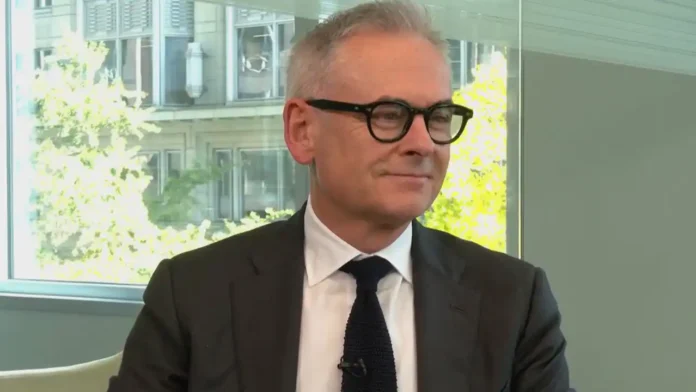New Delhi [India]: As global trade undergoes significant realignments, India must strategically defend its key sectors while capitalizing on shifts in global supply chains, said Brad Staples, CEO of APCO Worldwide, in an exclusive interaction with media.
Staples emphasized the need for India to accelerate bilateral trade negotiations, particularly by fast-tracking Free Trade Agreements (FTAs) to create a stable and predictable trade environment.
“Fast-tracking Free Trade Agreements (FTAs) and ensuring a stable, predictable trade environment will enhance India’s appeal as a trusted global trade partner,” he stated.
US Tariffs: A Challenge & Opportunity for India
The US has increasingly used tariffs as a strategic tool, imposing 25% duties on steel, aluminum, and recently on imported automobiles and automobile parts. Additional levies on pharmaceuticals and semiconductors are also being considered.
While China and the EU have responded with retaliatory measures, India has so far avoided direct tariff threats from the US, despite concerns about India’s high import duties.
India and the US have set an ambitious target to double bilateral trade to USD 500 billion by 2030. However, tariff disputes, data protection issues, and supply chain shifts pose challenges.
“Moving forward, both nations should prioritize deeper cooperation in digital trade, supply chain diversification, and strategic sectors like clean energy and advanced manufacturing to strengthen economic ties,” Staples suggested.
India’s Edge in Global Supply Chains
Staples highlighted that India has a unique opportunity to strengthen its manufacturing base and attract foreign investments, particularly in semiconductors, textiles, and chemicals, which are seeing increasing export volumes.
“To fully capitalize on this shift and maintain an edge over competitors in East and Southeast Asia, India must focus on key policy measures. Ensuring a stable and predictable policy environment will be critical in attracting long-term investments,” he noted.
Additionally, Staples stressed that the government must continue offering strong incentives for domestic and foreign investors to encourage large-scale manufacturing.
Challenges Hindering Large-Scale Investments
Despite India’s growing role in global trade, infrastructure gaps and regulatory complexities remain major hurdles for multinational corporations looking to commit to long-term investments.
On the impact of US-China trade tensions, Staples pointed out that major global companies are already increasing their presence in India:
- Apple has steadily increased its iPhone manufacturing in India, with production reaching 15% by early 2025 and expected to grow to 25% by 2027.
- Tesla recently leased its first showroom in Mumbai, signaling the increasing interest of high-tech manufacturers in India.
“These developments emphasize India’s growing role in global supply chains. But before committing to large-scale investments, India must ensure its trade policies remain stable, transparent, and investor-friendly,” Staples added.


